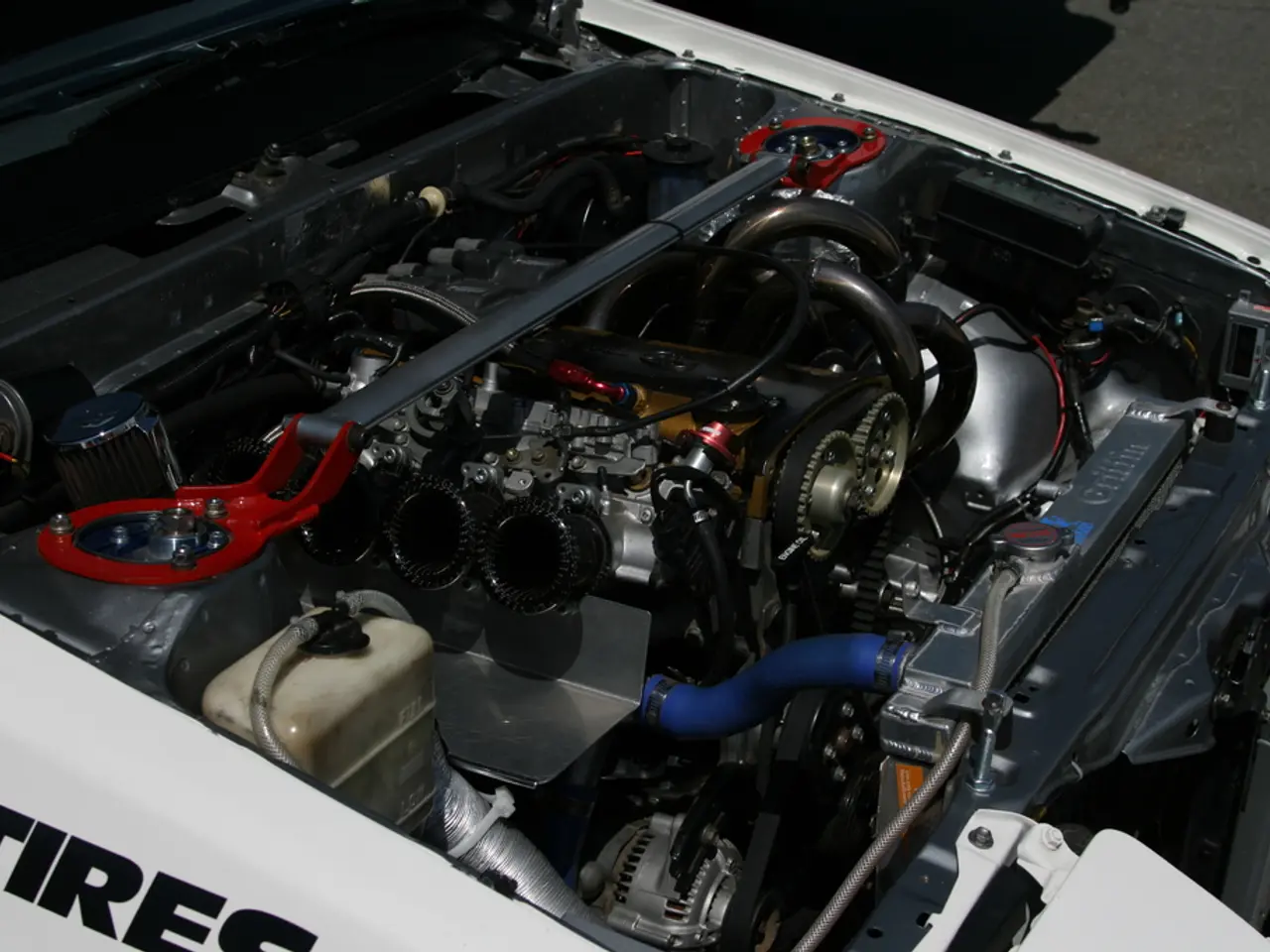Electric vehicles have seemingly taken a backseat in Germany's focus: a tech advancement they've already spearheaded, building the initial engine for it.
Bosch, a global leader in automotive technology, has taken a significant step forward in the realm of sustainable transportation with the development of a liquid hydrogen control unit (L-HSCU). This innovative system manages the entire storage chain of liquid hydrogen in vehicles, from refueling to storage at an icy -253.15°C and 5 bar pressure, to delivering hydrogen to fuel cells or combustion engines.
Equipped with safety mechanisms, sensors, and protective circuits for rapid shutdown and ventilation, the L-HSCU enables the safe and innovative use of liquid hydrogen propulsion in motorsport and potential commercial applications.
While Bosch is not currently selling hydrogen vehicles, the company believes in the potential of hydrogen as the future of transportation. Bosch sees hydrogen as the perfect balance between a combustion engine and a sustainable engine, offering a promising alternative to electric vehicles.
The interest in hydrogen technology is not limited to Bosch. Despite the surge of electric cars, hydrogen remains a topic of interest for many leaders in the automotive industry. Companies like Toyota, Honda, and BMW have already developed commercial models with fuel cells, sharing Bosch's optimism for hydrogen fuel cells.
Bosch's ambition extends beyond fuel cells for hydrogen vehicles. The company is also focusing on developing technologies for producing hydrogen, storing it under pressure, and using it in various applications, such as boilers, gas cookers, and fuel cells.
In a bid to accelerate the development and manufacturing of hydrogen technologies, Bosch plans to invest around 500 million euros a year. The company envisions a future where hydrogen is common and can be used for refueling in gasoline and hydrogen hybrid cars. Bosch even envisions hydrogen vehicles being recharged at the same stations as fuel cell cars, making the transition to hydrogen-powered transportation seamless and convenient.
As the world continues to grapple with climate change and the need for sustainable transportation solutions, Bosch's commitment to hydrogen technology is a promising step towards a cleaner, more sustainable future.
Read also:
- Web3 gaming platform, Pixelverse, debuts on Base and Farcaster networks
- Goodyear in 2025: Advancement in Total Mobility through the Launch of Kmax Gen-3 by Goodyear
- Electric SUV Showdown: Vinfast VF6 or MG Windsor EV - Your Choice Revealed
- United States Secures $632 Million to Fuel Electric Vehicle Revolution




